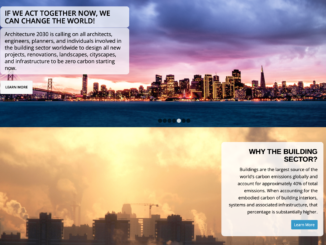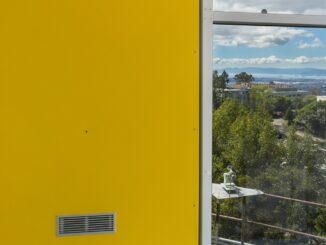With 27 zero net energy (ZNE) schools operating or planned, California is leading the nation in driving K-12 schools and community colleges to ZNE performance. These projects represent high performance buildings that combine energy efficiency and renewable resources to produce at least as much energy as they consume annually. To honor early innovation and leadership in this market, New Buildings Institute (NBI), on behalf of California’s investor-owned utilities (IOUs) and in partnership with the California Public Utilities Commission and other agencies, is calling for submissions to the ZNE awards and recognition program. The awards, now in their second year, will showcase the people, buildings, and policies that are driving this new standard for school environments.

For the 2017 awards, NBI is seeking submissions and the deadline has been extended to October 20th, 2017, in the following categories:
LEADERSHIP
Individuals & Teams: Honoring the champions, individuals who inspire others on the path to ZNE and project teams that work effectively together to achieve ZNE goals.
Districts: Recognizing large and small districts that have created policies, programs, or plans that results in larger scale advancement of zero energy buildings.
OUTSTANDING BUILDINGS
Spotlighting ZNE verified, ZNE emerging and ultra-low energy projects at K-12 schools and community college campuses.
With energy bills at California’s K-12 public schools totaling more than $700 million a year, according to the California Energy Commission (CEC) Consumer Energy Center, innovative energy-saving solutions are needed to manage costs. Schools built and renovated to ZNE performance have substantially lower energy costs and over time save money on energy bills that can be spent on students and programs. In addition, K-12 schools and community colleges represent key opportunities for ZNE projects. New ZNE schools already exist in many states across the country and a variety of climate zones, with some of the best examples being built for the average costs of school construction. As local examples of the feasibility and benefits of ZNE continue to increase, schools are an important platform to educate the broader public about sustainability, and demonstrate a commitment to reducing climate impacts.
The ZNE school awards will be presented on November 28th during the 2017 Green Schools Summit in Pasadena, California. Participation is open to individuals, teams, champions, school campuses and districts involved in a ZNE project. Applicants must demonstrate how their project is either achieving or on track to achieve ZNE performance, or is providing leadership for others to learn from. The winners will be selected based on review and evaluation from a committee of advisors with experience in sustainable design, high performance buildings, and zero net energy. See details at www.newbuildings.org/ZNE-awards.
Those interested in learning more about ZNE schools, and particularly retrofits of existing schools to ZNE performance, can attend a pre-conference ZNE School Retrofit Workshop: The Business of ZNE School Retrofits and Community Impact on November 27th, prior to the Green Schools Summit. The interactive program is designed to help administrators, building professionals, and others learn about the State’s goals for ZNE, how to tap Prop 39 funding, and how to apply the necessary design strategies and technology applications to whole-building retrofit projects. Register at www.newbuildings.org/ZNE-workshops.
ABOUT ZNE SCHOOLS IN CALIFORNIA AND PROP 39
The California Energy Efficiency Strategic Plan has set ambitious goals for achieving zero net energy (ZNE) for all new commercial buildings by 2030. To support these ambitious State goals, Proposition 39 ZNE School Retrofit Pilot Program is providing California’s existing schools ZNE additional financial resources that can help transform some of the State’s K-12 and community college buildings to ZNE. The ZNE Schools Awards program and workshop are part of this Proposition 39 pilot effort and is supported by Pacific Gas and Electric Company, San Diego Gas and Electric, Southern California Edison and Southern California Gas Company.
ABOUT NBI
New Buildings Institute (NBI) is a nonprofit organization working to improve the energy performance of commercial buildings. NBI works collaboratively with commercial building market players–governments, utilities, energy efficiency advocates, and building professionals–to remove barriers to energy efficiency, including promoting advanced design practices, improved technologies, public policies and programs that improve energy efficiency. Learn more at http://www.newbuildings.org.




Be the first to comment